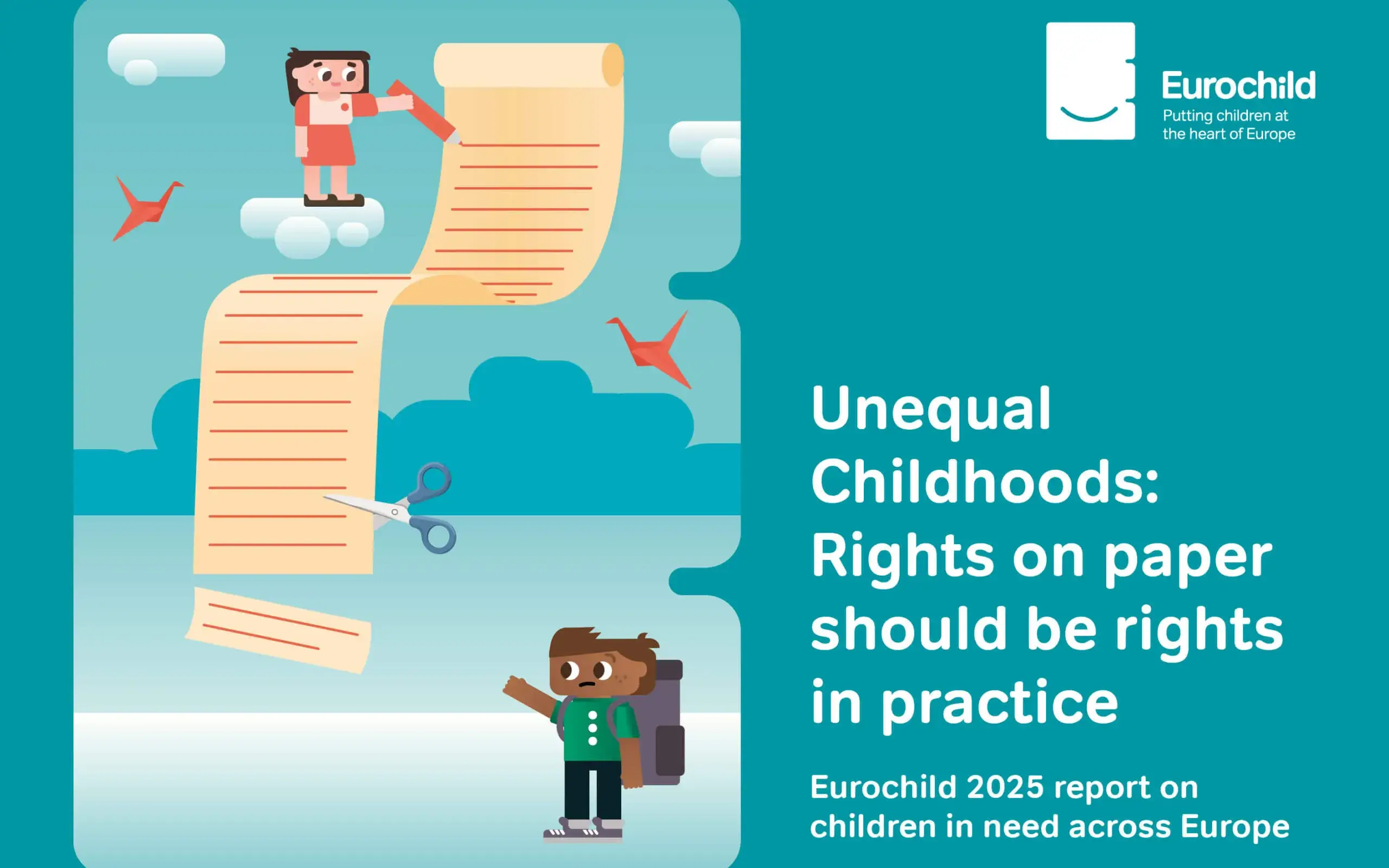Pedro Aguilera, FAGiC’s director, and Annabel Carballo, responsible of the European Area of FAGiC, talk about how the coronavirus is affecting Roma and the growth of Antigypsyism all over Europe.
How is Covid-19 affecting Roma all over Europe?
Covid-19 has changed the life of people across the world, but it affects more to the vulnerable groups. Among them the Roma, who suffers historically from levels of poverty much higher than those of the rest of the population.
Why Roma are amongst the most affected and impacted by Covid-19?
Mainly due to devastating living conditions, the lack of access to water and sanitation to wash hands frequently and sanitize living spaces. Roma living under these conditions find it very hard to protect themselves from getting the virus or spreading it further. For those Roma who are homeless or are living in segregated and illegal camps and settlements, the situation is even harder.
Due to the socioeconomic situation of the majority of Roma, their health situation is worse in comparison with the mainstream society. The poor health of many communities and the chronic illnesses such as asthma or chronic bronchitis, Roma can be more susceptible to COVID-19 and other serious complications on a long-term. The absence of health insurance, the lives of many Roma families in Europe are seriously at a high risk.
With this background, what role is the systemic discrimination playing?
According to Roma Civil Monitor in Bulgaria, the Czech Republic, France, Hungary, Italy, and Slovakia, even where safe water supply and sanitation services were available to non-Roma households, systemic discrimination meant that Roma were often denied such services.
The rise of Antigypsyism in all countries is also affecting Roma all over Europe. Maybe, the most notable case, taking in consideration its fatal ends, is the death by two shots of a Roma man who was walking through a place known as Dehesa de López into the small town of Rociana del Condado (Spain). He was accompanied by his son (7 years old). It seems that this person wanted to grab a bucket of beans from the alleged murderer's garden. The murder did not doubt to shot the victim twice in the face and in the chest.
One of the consequences of this health crisis is the lockdowns measures taken by governments. How are these lockdowns affecting Roma all over Europe?
The lockdown measures taken by the states in Europe have provoked a limited or lack of access to food suppliers and medical provisions. This issue additionally worsens the health status of Roma and this will increase their vulnerability to the virus.
It is also important to mention the outbreak of discriminatory practices by several state authorities in terms of locking down some specific Roma settlements.
Can you give us an example?
In Bulgaria, the authorities have introduced gradually stricter measures to prevent the spread of the virus. Under these special measures, many mayors across Bulgaria have set up roadblocks and policed checkpoints to prevent Roma residents from entering and leaving.
The authorities in Bulgaria have also built temporary walls around Roma areas and have imposed a complete containment regime on those areas. This is happening in the towns of Nova Zagora, Kazanlak and Sliven in where are living around 50.000 Roma. The authorities’ argument is the “lack of discipline among its residents”. The problem is not the lack of discipline, it is the lack to clean water and sanitation, but instead of ensuring the access to public supply of water during the pandemic, the authorities closed completely the Roma areas under police and military surveillance.
Is it an isolated incident?
No. Other example of what is going on in many European countries at different levels is the case of Slovakia. The day after of the International Roma Day – April 8, the government of Slovakia decided to lockdown five entire Roma settlements in eastern Slovakia: three in the village of Krompachy, and one in the villages of Bystrany and Žehra, without providing families with any information about the duration and the conditions of their confinement.
According to the Slovakian government, such measures were necessary to protect public health as there were 31 positive cases in those five settlements, which have over 6,800 residents. The most interesting about the governments worries is that the authorities did not separate those who had positive tests for COVID-19 from the rest of the community. There are also evidences that the authorities did not put in place adequate provisions of food and medical supplies.
Could we say that Antigypsyism is increasing?
Antigypsyism has risen not only by the mainstream society but also by the authorities of many European countries. FAGiC is implementing since March a European project on hate speech online, especially hate speech against Roma. The project is leaded by ERGO – European Roma Grassroots Organizations, and it’s being also implementing in 9 more countries. The project is funded by the REC (2014 – 2020) programmer of the EU and by Google.org. All this information is being collected and it’s given to the European Commissioner Helena Dalli.
How can this health crisis affect the economic situation of Roma?
In the area of employment, those Roma with lower incomes and insecure or informal employment have lost their income due to the strong impact of the epidemic on many parts of the economy. Here we are meaning also Roma working in the arts and culture field, as musicians, cultural producers, artisans, small traders and market sellers, etc. but also, those collecting and selling scrap and the ones who are working in informal way as small traders and market sellers.
What can you say about children effects?
In relation with education, as schools have been closed and education has been turned to an online or remote system, Roma children are particularly affected especially due to three issues. The first one is the lack to access to Internet. Many Roma are living without electricity, so imagine how many families do not have Internet access because of the cost and also because where they are living, many companies do not supply to these areas.
Second issue is the lack of computers/laptops or tablets. Many Roma families do not have them.
The third issue is the lack of knowledge, even if the families are provided with Internet and devices, many children do not how to use them and parents, majority with a high rate of illiteracy especially IT illiteracy, cannot support their children to follow the lessons. Other aspects such home environment, language assistance, etc.… are also important to take into consideration.
What measures are the governments taking to support Roma?
As far as we know, the only government which has taken some measures to support Roma is the government of North Macedonia. The Macedonian government has provided water to a Roma settlement in Prilep and also several social protection measures for vulnerable groups.
The majority of the governments have taken measures targeting “vulnerable groups” in general, but not specific measures for Roma. All over Europe, there are Roma living in inadequate, insalubrious, unsafe conditions without access to running water and sanitation. So governments should provide specific measures for Roma living under these conditions, but instead of that, politicians have actively fuelled antigypsyism.
Is the European Union taking into account the situation of marginalised groups and Roma under the recovery plan?
What we can say is that the European Union is aware of the situation. FAGiC is member of ERGO network and ERGO has written a good document about the effects of Covid-19 on Roma communities in EU Member States and Enlargement and Neighbourhood Countries. The document provides information in detail of how Covid-19 is affecting Roma across Europe and information in detail of each country.
It is fair to mention that ERGO is in direct contact with Commissioner Helena Dalli and she is openly listening to us, Roma organisations, and she is willing to work with us and find the best solutions. So, hopefully, it will be specific measures targeting Roma under the EU Recovery Plan.
What measures do you propose European Union must take to help Roma and most vulnerable groups?
First proposal is to create specific measures to Roma and ensure that these measures reach Roma people. We urge Member States and Enlargement Countries to develop an urgent response to the educational needs of Roma children by allocating funding to improving their access to education, including devices, access to Internet and what is very important digital literacy that may prevent poor education attainment and school dropout.
Regarding employment, support to temporary and seasonal workers is very important but also the recognition of informal work, so those Roma can benefit from social protection. Of course, during the pandemic ensure that Roma in poor settlements have access to provisions of food, medicine, hygiene products, health care and what is very important and it is a human right, access to water. However, measures to mid and long term also should be considered so in the future Roma people would be more protected.
And last, but not least, the fight against antigypsyism. This is a priority. Many of the measures against Roma is because of antigypsism and the lack of specific measures to Roma as well. So important measures must be taken by all governments, without them acts like the murder of a Roma man in Huelva for presumably trying to steal a bucket of beans because of hunger will be multiply.







Add new comment